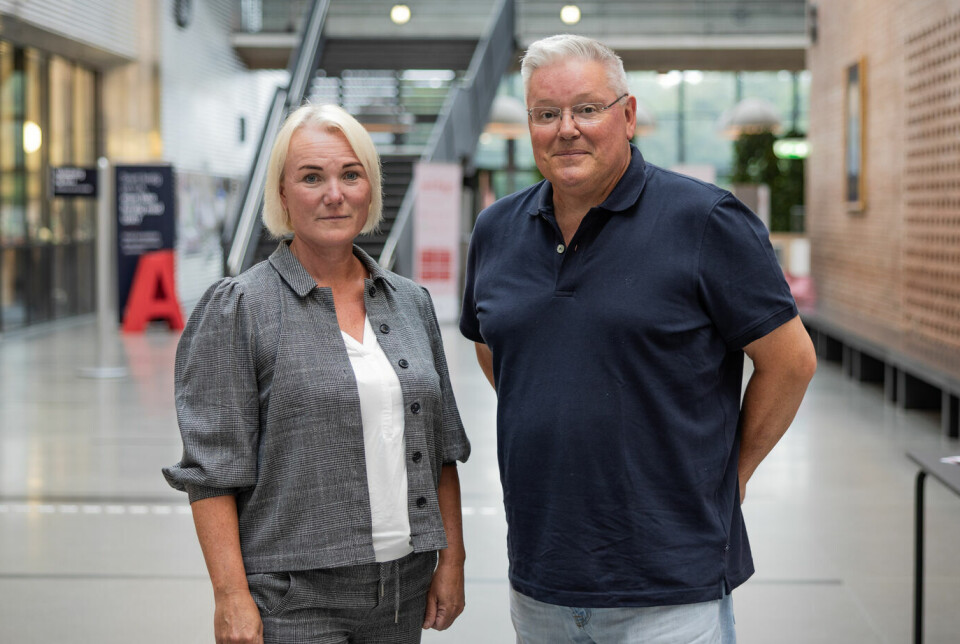THIS CONTENT IS BROUGHT TO YOU BY THE University of Agder - read more
Municipalities lack knowledge on how to lead schools
Norwegian municipalities know too little about how to be good employers for teachers and school leaders. A new study reveals large gaps in the research on municipalities' role as local school authorities.

“We've been so focused on educational development that we've forgotten the fundamental conditions needed for schools to actually function,” says Professor Morten Øgård at the University of Agder.
Together with researcher Linda Hye and Professor Emeritus Harald Baldersheim, he has mapped out previous research on municipalities' responsibilities as school owners.
The report reveals that leaders in kindergartens and schools too often end up standing alone, explains Stig Johannessen, leader of the Norwegian School Heads Association.
“To succeed with inclusion, learning, and ensuring that all children are seen and heard, it's crucial that municipalities support leaders in kindergartens and schools. What the report reveals must be followed up with action,” he says.
Imbalance in knowledge
The researchers looked at four main areas: employer responsibility, financing, organisation, and development of schools. The findings show that some areas are much more researched than others.
“There is a plethora of research on educational development. However, we found only four studies focusing on municipalities' employer responsibilities,” says Linda Hye.
The researchers find this concerning, given the work environment for school leaders:
- 70 per cent of headteachers say that the workload is unreasonably high
- 67 per cent lack a job description
- 60 per cent do not receive clear feedback on their performance
- 45 per cent feel neither appreciated nor supported by the municipality as leaders
“Headteachers and middle managers face an unreasonably high workload. This is an employer responsibility. Yet, research has shown little interest,” says Hye.
Lack of a holistic system
Morten Øgård believes pedagogical research environments have dominated the field for too long. He says that the current school system lacks the prerequisites to function holistically.
Øgård notes that simply adding more pedagogy won't lead to organisational development or fresh thinking.
"We need learning and innovative organisations, and for that, we need the basic organisational, structural, cultural and managerial foundations,” he says.
Large organisations require leadership
The largest schools in Agder county have over 350 staff members and 1,500 students. That makes them some of the region's largest workplaces.
“These are very large organisations. If we fail to organise them properly, the resources we invest will just slip through our fingers,” says Øgård.
However, there is little knowledge about what actually constitutes effective school leadership. Much research only describes what municipalities do, not whether it is effective.
“We don't need more mere descriptions of what is being done in schools. We need to discover the right path forward,” Hye says.
Broken value chain
The report reveals what researchers call a broken value chain in Norwegian schools. Municipalities struggle to create effective meeting places between politicians, administration, and schools.
“Local politicians are often perceived as detached from the realities in schools. Local school policies are not exactly hotly debated,” says Hye.
The researchers want more disciplines to be included in school research. They believe that economists, legal scholars, and organisational researchers can contribute important knowledge.
“Municipalities manage billions and are responsible for the future of hundreds of thousands of students. We need to know how they can best uphold this responsibility,” Øgård says.
Reference:
Hye et al. Lokal skolemyndighet – jakten på systembalanse (Local school authorities – the pursuit of system balance), Knowledge summary on behalf of the Norwegian School Heads Association, University of Agder, 2025.

This content is paid for and presented by the University of Agder
This content is created by the University of Agder's communication staff, who use this platform to communicate science and share results from research with the public. The University of Agder is one of more than 80 owners of ScienceNorway.no. Read more here.
More content from the University of Agder:
-
Fear being rejected: Half pay for gender-affirming surgery themselves
-
Study: "Young people take Paracetamol and Ibuprofen for anxiety, depression, and physical pain"
-
Research paved the way for better maths courses for multicultural student teachers
-
The law protects the students. What about the teachers?
-
This researcher has helped more economics students pass their maths exams
-
There are many cases of fathers and sons both reaching elite level in football. Why is that?




































